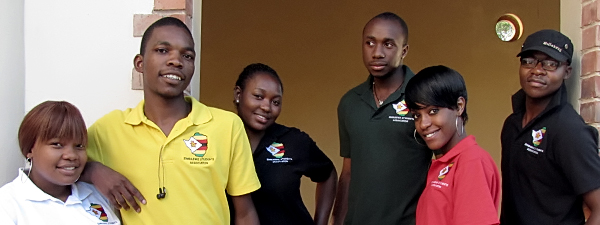Latest News Archive
Please select Category, Year, and then Month to display items
12 October 2020
|
Story Arina Engelbrecht
|
Photo Supplied
 Arina Engelbrecht from Organisational Development and Employee Well-being believes physical activity has a number of benefits for one’s health, including stress relief.
Arina Engelbrecht from Organisational Development and Employee Well-being believes physical activity has a number of benefits for one’s health, including stress relief.
Being physically active plays a big role in preventing the development of mental-health problems and in improving the quality of life of people experiencing mental-health problems.
Treatment for depression
Physical activity can be an alternative treatment for depression. It can be used as a stand-alone treatment or in combination with medication and/or psychological therapy. It promotes all kinds of changes in the brain, including neural growth, reduced inflammation, and new activity patterns are formed that promote feelings of calm and well-being. It releases endorphins – powerful chemicals in the brain that energise your spirit and make you feel good.
Physical activity can be very effective in relieving stress. Research in adults has found that physically active individuals tend to have lower stress levels compared to individuals who are less active. It also leads to improved sleep. When a person sleeps better and feels more rested, overall quality of life improves. They cope better with daily life stressors.
Reduce Alzheimer's risk
Regular physical activity can reduce your risk of developing Alzheimer's disease by up to 50%. It can also slow down further deterioration in those who have already started to develop cognitive problems. It stimulates the brain’s ability to maintain old connections as well as to make new ones.
A study asked people to rate their mood immediately after periods of physical activity (e.g. going for a walk/run, cycling, doing housework) and periods of inactivity (e.g. reading a book or watching television). Researchers found that participants felt more content, more awake, and calmer after being physically active compared to after periods of inactivity.
In conclusion, people who are physically active feel a sense of well-being, feel more energetic throughout the day, sleep better at night, have sharper memories, and feel more relaxed and positive about themselves and their lives.
“Being physically active not only changes your body, it changes your mind,
attitude, and your mood.” – Arina Engelbrecht
International students welcomed
2013-02-15
 |
| Photo: Linda Fekisi |
The International Affairs portfolio of the Student Representative Council (SRC) hosted a welcoming session for international first-entry students at the Bloemfontein Campus.
Tumelo Moreri, SRC member: International Affairs, said there are approximately 2 000 international students who are registered at the university. The students come from 46 countries around the world, not just from Africa.
In her welcoming speech, Tumelo urged the students to apply to the Student Council. “Your presence on this campus has to be felt as international students.”
Director of the Office for International Affairs, Mrs Dineo Gaofhiwe-Ingram, was among the speakers at the event. She advised students to realise the importance of being at the University of the Free State and urged them to interact and be part of student life. The overall message was to engage in the various structures the varsity has to offer. Mrs Gaofhiwe-Ingram told them not be silent, but that their voices should be heard as they also form an important part of the Kovsie family.